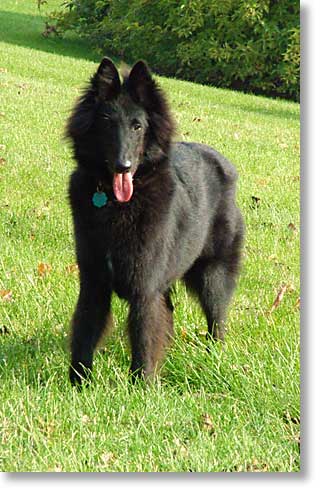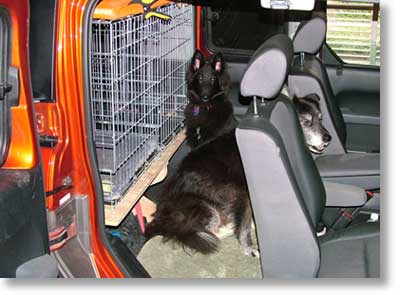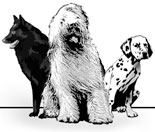Bing Blog #2
| "Single Event Learning" -- November 6, 2005 I think it’s appropriate to spend some more time pondering the concept of "single event learning." My students often hear me say, “Dogs don’t generalize very well." So we have to help them by training them in different locations, facing different directions in a room, and varying our body posture relative to the dog (standing, sitting, kneeling, sitting on the floor, lying on the floor). Yet, if all of this is true, then why did Bing learn his ridiculous excited behavior in the car in one repetition? I believe that it has to do with survival. Most of the skills we teach our dogs are manners; sit, down, come, stay, wait, leave it, walk nicely on the leash. It is true that these skills might save a dog’s life. However, if it were up to the dog, none of these skills would make a difference; it’s the relationship between the dog and the human that makes these skills important. For this reason, we need to reward these behaviors repeatedly to make sure that it ‘sticks’ in the dog’s memory. Not so with survival skills. It only takes once for those skills to stick. And if it doesn’t, it often means the dog doesn’t survive. While Bing’s car behavior doesn’t seem to make much sense to us humans, it makes perfect sense to him. |
||||||||||
 |
||||||||||
Bing -- at about 6 months. November 6, 2005 |
||||||||||
| Acacia was excited, barking, screaming, trembling in excitement (Belgians are good at this!). Montana was doing the same, and so was Maddy (of sorts…as excited as a 13 year old English Setter can get!). For Acacia, it was all about chasing her tennis ball, aka “The Ballie.” For Montana and Maddy, it was all about, “Well, she’s excited, so we should be, too!” And so it was for Bing, too. But being a 3 month old pup who adores his big sis, he got a bit too exuberant, and the result was that Acacia ‘pummeled’ him. It doesn’t take much for Bing to scream bloody murder, and that’s exactly what he did. Puppies don’t have self control and they often have poor thresholds for excitement and frustration. So Bing got pummeled, and then we separated him and put him safely in his crate in the car, and the ruckus continued without him. |
||||||||||
 |
||||||||||
|
P.S. Bing was able to travel to handling class and home in the crate, with a stuffed Kong for company, with nary a peep. OK, a few baby bird noises, but not many. He was still very anxious to get to the car, though. He repeated the same thing today on his ride to the pet food store and back. Yay! There IS hope! (Shall I mention that we went to the store to work on his ‘don’t nip at the hand that’s coming near you to pet you" behavior?) Stay tuned! Ali |
||||||||||
Bing and Montana in the middle of the car. Bing is usually
|
||||||||||
|
|
||||||||||



